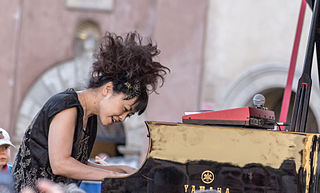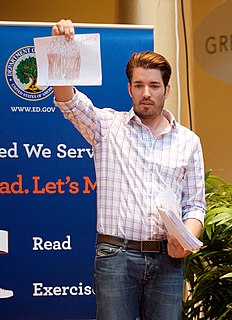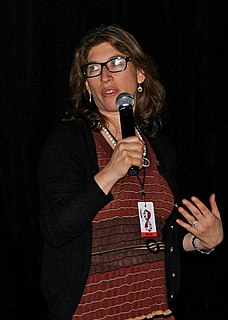A Quote by Chris Hadfield
When you're on one of the Caribbean islands, sometimes it's hard to picture how they fit in with the rest, but when you see them all joined together like a necklace from space, you see the natural geographic connectedness of them all.
Related Quotes
I imagined Kandinsky's mind, spread out all over the world, and then gathered together. Everyone having only a piece of the puzzle. Only in a show like this could you see the complete picture, stack the pieces up, hold them to the light, see how it all fit together. It made me hopeful, like someday my life would make sense too, if I could just hold all the pieces together at the same time.
When buyers see the pride of ownership - when they come in, and they're impressed by how clean the place is - they can picture their kids playing on the floor. They can picture the family sitting around the table. When they can picture their own family in that space, instantly you grab them, and they'll pay more money, too.
When I met my first savant in 1962, I was impressed by the abilities in these youngsters who had severe disabilities. They appeared to me to be islands of genius in the sea of disability. So I've maintained that word picture since that time, of these islands of genius that are so striking and so jarring when you see them, especially in people who have severe disability.
To see talented people in roles that others might not see them in, to see how they might fit in the puzzle of the cast, has always been something that I've been good at. I think that if you look at the successes of my films and start to peel them back, there's usually a really smart casting decision that has gone into that success.
Effectively, what we are saying to the governments of Europe is, 'OK, after 300 years, you have left these islands in a pretty bad state. You've left them with terrible developmental challenges, and we believe you have a responsibility to return to the Caribbean and participate in the rebuilding of the Caribbean.'
Marriage is a lot of things - a source of love, security, the joy of children, but it's also an interpersonal battlefield, and it's not hard to see why: Take two disparate people, toss them together in often-confined quarters, add the stresses of money and kids - now lather, rinse, repeat for the rest of your natural life. What could go wrong?
































